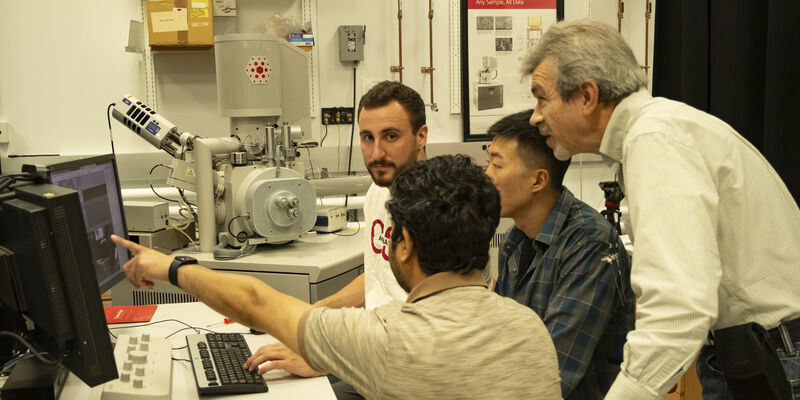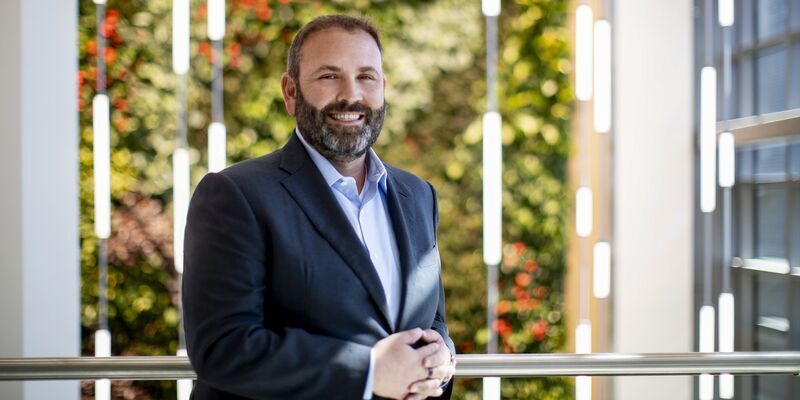Temple’s Semester of Quantum will prepare faculty for the next tech revolution
The United Nations declared 2025 as the International Year of Quantum Science and Technology. In response, Temple organized the Semester of Quantum to engage faculty and highlight how the rapid development of quantum technologies will advance discoveries in nearly every field.

Quantum science, much like artificial intelligence a decade ago, is poised to soon have a transformational effect on nearly every industry, from biomedical and clinical research to business, engineering and climate science. As such, 2025 has been proclaimed the International Year of Quantum Science and Technology (IYQ 2025) by the United Nations and the American Physical Society.
Temple University’s Office of the Vice President for Research (OVPR) also recognizes the promise of quantum and is celebrating IYQ 2025 with its own Semester of Quantum, featuring a series of events that highlight how rapid development of new technologies based on quantum science will advance discovery in many fields.
“Part of my job as chief research officer is to look ahead and see what tools are going to transform the way our researchers work,” said Vice President for Research Josh Gladden. “Right now, we’re in the midst of the AI wave, and I believe quantum technologies will be just as transformative, but in different ways. They’ll create powerful new tools for discovery across nearly every discipline. We know this wave is coming, even if it is still five or six years out, so now is the time for Temple’s research community to start getting ready.”
Gladden added that Temple’s goal is not just to spotlight quantum science, but to help faculty across disciplines start thinking about how these tools might transform their own scholarship. The Semester of Quantum will socialize quantum science topics to faculty and give them a jump start on curricula, programming and workforce development for when quantum technologies become more commonplace.
“Computer scientists were eagerly trying to engage researchers across disciplines about the potential of AI for over a decade, but not enough people understood the impact the technology would have until more recently,” said Seema Freer, director of research development at OVPR. “Similarly, we’re trying to announce the potential of quantum technologies, and we want to engage our faculty and help them understand the power of quantum sensing and computing. Name our 17 schools and colleges, quantum computing and sensing will affect them all.”
OVPR partnered with departments and faculty from across the university in planning the Semester of Quantum’s programming.
On Tuesday, Oct. 21, the College of Engineering hosted Hybrid Quantum Optimization for Energy Systems: From Quantum Dynamics to Practical Applications, a lecture exploring quantum optimization algorithms through the lens of quantum dynamics.
The Department of Physics has been hosting a Physics Quantum Lecture Series, welcoming speakers from Bard College and Yale University for discussions about cutting-edge quantum applications. The final lecture in the series, Quantum Algorithms from Utility to Advantage and Beyond, will welcome Pedro Rivero from IBM on Monday, Oct. 27.
And on Wednesday, Nov. 12, the Fox School of Business is hosting From Qubits to Business Value, a virtual conference exploring the ways that quantum computing is moving beyond the lab and into business applications. Interested faculty members can learn more and register for the event here.
The Semester of Quantum’s biggest and most engaging event is the Quantum Information Science and Technology (QIST) Symposium on Tuesday, Oct. 28. The QIST Symposium will bring together researchers, industry leaders and policymakers to explore the current state, as well as the future of, quantum technologies and workforce development. The all-day event will focus on emerging tools for the research community and the ways that Temple can best prepare students for a quantum-ready workforce.
The QIST Symposium will welcome notable speakers from the quantum space including Anna Grassellino, director of the National Quantum Information Science SQMS Center; Gurudev Dutt from the Pittsburgh Quantum Institute; and Arun Bansil, professor of physics from Northeastern University.
The day’s panels also feature Temple leadership and faculty, including Gladden; Miguel Mostafá, dean of the College of Science and Technology; Maria Iavarone, chair of the Department of Physics; Sunil Wattal, associate dean of research and doctoral programs at the Fox School of Business; and more.
The symposium will also provide networking opportunities for its attendees. Learn more and register for the QIST Symposium here.
“Even for researchers who are not physicists or engineers, these tools are coming their way,” Gladden said. “The earlier they start thinking about how quantum technologies will transform their field, the better positioned they’ll be when these tools become readily available. So, I encourage our scholars in just about any field to come out to the symposium.”


